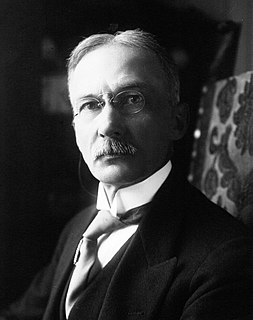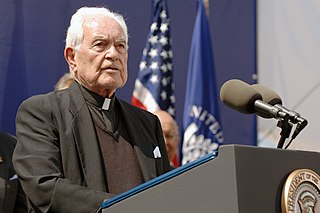A Quote by Bertrand Russell
All definite knowledge - so I should contend - belongs to science; all dogma as to what surpasses definite knowledge belongs to theology. But between theology and science there is a No Man's Land, exposed to attack by both sides; this No Man's Land is philosophy.
Related Quotes
The ultimate goal of theology isn't knowledge, but worship. If our learning and knowledge of God do not lead to the joyful praise of God, we have failed. We learn only that we might laud, which is to say that theology without doxology is idolatry. The only theology worth studying is a theology that can be sung!
If the term education may be understood in so large a sense as to include all that belongs to the improvement of the mind, either by the acquisition of the knowledge of others or by increase of it through its own exertions, we learn by them what is the kind of education science offers to man. It teaches us to be neglectful of nothing - not to despise the small beginnings, for they precede of necessity all great things in the knowledge of science, either pure or applied.
Economics is a theoretical science and as such abstains from any judgement of value. It is not its task to tell people what ends they should aim at. It is a science of the means to be applied for attainment of ends chosen, not, to be sure, a science of the choosing of ends. Ultimate decisions, the valuations and the choosing of ends, are beyond the scope of any science. Science never tells a man how he should act; it merely shows how a man must act if he wants to attain definite ends.
Theology differs from science in many respects, because of its different subject matter, a personal God who cannot be put to the test in the way that the impersonal physical world can be subjected to experimental enquiry. Yet science and theology have this in common, that each can be, and should be defended as being investigations of what is, the search for increasing verisimilitude in our understanding of reality.
The mere man of pleasure is miserable in old age, and the mere drudge in business is but little better, whereas, natural philosophy, mathematical and mechanical science, are a continual source of tranquil pleasure, and in spite of the gloomy dogmas of priests and of superstition, the study of these things is the true theology; it teaches man to know and admire the Creator, for the principles of science are in the creation, and are unchangeable and of divine origin.
For this knowledge of right living, we have sought a new name... . As theology is the science of religious life, and biology the science of [physical] life ... so let Oekology be henceforth the science of [our] normal lives ... the worthiest of all the applied sciences which teaches the principles on which to found... healthy... and happy life.



































